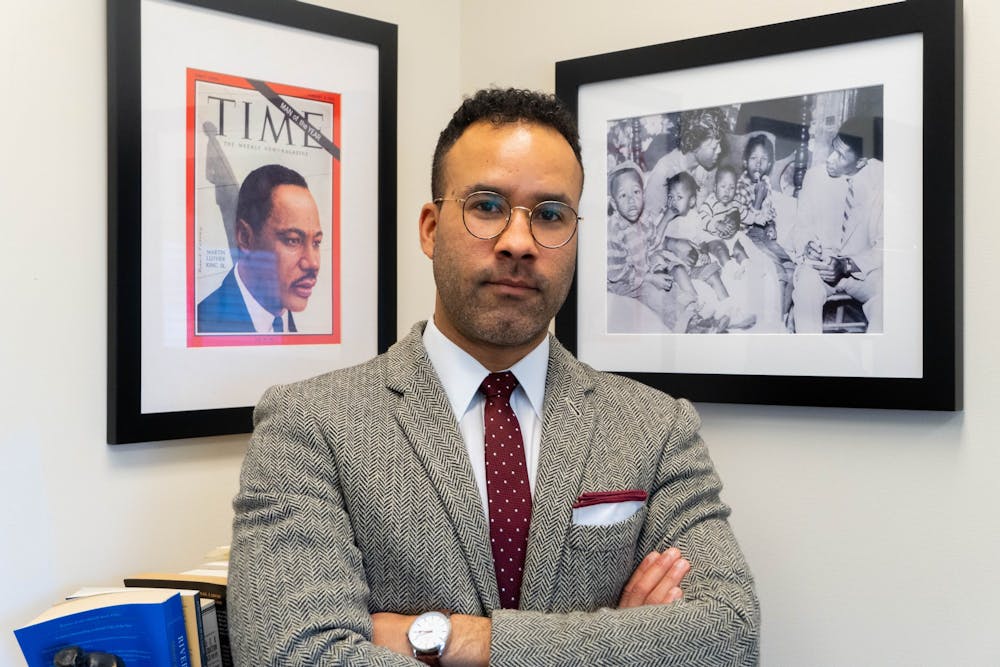The readings for William Sturkey’s America in the Sixties class include much of what one might expect from another history course — speeches from John F. Kennedy, articles about the Vietnam War and lectures on the civil rights movement.
But the associate professor of history also includes required listening in his syllabus: some of the top songs of the 1960s, from Bob Dylan to The Temptations to Aretha Franklin to his current favorite, “(Sittin’ On) The Dock of the Bay” by Otis Redding.
“The music is also a primary source,” Sturkey said. “So as we're analyzing, let's say, the way that young people might think about men's and women's relationships, we listen to some of the songs about dating, some of the major pop hits. We have a whole day on Motown and The Beatles.”
Sturkey said the goal of the class is to tie together all of the different movements of the '60s — from music to foreign policy to civil rights — to get a broader understanding of the decade.
His research focuses on the history of race in the South, writing about the experiences of non-white people who have fundamentally shaped American history but have largely been excluded from the narrative around it, he said.
His most recent book, “Hattiesburg: An American City in Black and White,” centers on a Black community in Mississippi during the Jim Crow era leading up to the civil rights movement.
“People like my family members haven't been included in the story of who Americans are and what America is,” Sturkey said. “And a large part of my work is centering their lives in that story.”
Sturkey said he was initially drawn to studying history and the history of race because of his personal experiences with racism growing up in northwestern Pennsylvania. In college, he took history classes that empowered him to more deeply understand the nature of race in the United States.
And now that he's the one teaching, he wants to do the same for his students.



